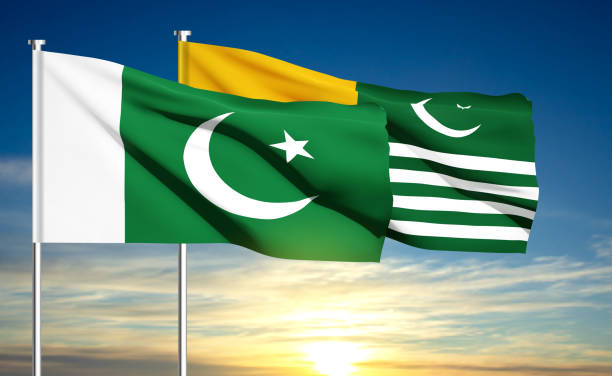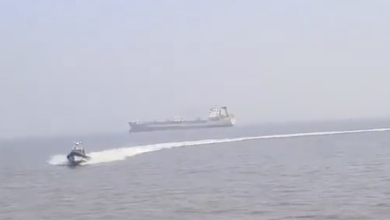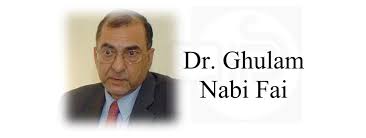 In the majestic mountains of Azad Jammu and Kashmir (AJK), the National Security Workshop Kashmir (NSWK-II) opened like a story retold through generations—a tale of resilience, unity, and undying loyalty to the cause of Kashmir. For four memorable days, Muzaffarabad, the capital city of the liberated territory, became more than just a place; it transformed into a meeting of minds and hearts, where the spirit of Kashmir was invoked with reverence and purpose. Attendees came from different regions and all walks of life—military leaders, diplomats, educators, traders, students, and advocates—all woven together by a thread as ancient and unbreakable as the mountains.
In the majestic mountains of Azad Jammu and Kashmir (AJK), the National Security Workshop Kashmir (NSWK-II) opened like a story retold through generations—a tale of resilience, unity, and undying loyalty to the cause of Kashmir. For four memorable days, Muzaffarabad, the capital city of the liberated territory, became more than just a place; it transformed into a meeting of minds and hearts, where the spirit of Kashmir was invoked with reverence and purpose. Attendees came from different regions and all walks of life—military leaders, diplomats, educators, traders, students, and advocates—all woven together by a thread as ancient and unbreakable as the mountains.
Sardar Masood Khan, the former President of AJK and a career diplomat, opened the workshop with words that felt less like an address and more like a hymn to the sanctity of the Kashmiri people. He reminded us that Kashmir is not just a boundary on a map; it is a promise etched into Pakistan’s very soul. “We cannot waver in our devotion,” he said, his voice carrying the weight of history and the depth of conviction. His call to unity and resilience was not just a reminder but a rallying cry, urging us to stand strong against the tides of diplomacy and power that sometimes threaten to dim the Kashmir cause. To support Kashmir, he said, is to support Pakistan’s moral heartbeat, to preserve the integrity and future of the nation itself.
Then came the indomitable Dr. Maliha Lodhi, who joined through a video link, her voice carrying wisdom and urgency. Known for her uncompromising stance on Pakistan’s interests, Dr. Lodhi spoke about the need for renewed energy in our diplomatic efforts, a reawakening of the Kashmir issue on the global stage. “Kashmir is not just a political issue for Pakistan; it is the essence of who we are,” she said, her words striking deep. She urged Pakistan’s leadership to recall the courage and sacrifices of Kashmiris, to champion their struggle with the same vigor as Pakistan’s founding ideals. Her voice was both a reminder and a challenge—diplomacy, like devotion, cannot falter when the stakes are as high as Kashmir.
Amid these powerful voices, the words of Mushal Hussain Malik, wife of imprisoned Kashmiri leader Yasin Malik, cast a poignant spell over the audience. Her story, rich with loss and defiance, held up a mirror to the unimaginable struggles Kashmiris face daily. She spoke not just of Yasin’s sacrifices but of every nameless mother, child, and elder who endures the relentless cycle of oppression. “This is not just about borders; it’s about humanity,” she said, her voice steady yet filled with pain. Her words moved everyone in the room, calling us to remember that behind every policy and protest is a life, a story, a sacrifice made in the name of dignity and freedom.
A visit to the University of Azad Jammu and Kashmir (UAJK) followed, offering a glimpse into the future of Kashmir through its bright and questioning youth. Vice-Chancellor Prof. Dr. Muhammad Kaleem Abbasi fielded questions with the wisdom of an educator who knows the stakes involved in shaping young minds. Alongside him, Prof. Dr. Saadat Hanif Dar gave an inspiring overview of the university’s achievements, showing how the institution stands as a bastion of critical thinking and hope. At that moment, UAJK wasn’t just a university but a sanctuary for a generation that holds Kashmir’s fate in its hands. This visit was a reminder that in every classroom and conversation, the legacy of Kashmir is being passed down, growing stronger, deeper, and more resilient.
I had the privilege to speak on “The Role of Media in Opinion Formulation and Its Impact on National Cohesion and the Kashmir Cause,” and I felt the gravity of the moment. Media, as I shared, is a double-edged sword—capable of fostering unity or creating discord. It doesn’t merely reflect our reality; it shapes it, amplifies it, and determines what issues live in the spotlight, and which fade into silence. I spoke of the power of framing, and how media can unify a nation under shared tragedies, like the 2005 earthquake, or inspire collective resolve, as it did after the APS Peshawar attack. But in the digital age, media has also become a fertile ground for echo chambers and misinformation, amplifying divisions that erode our national identity. I urged participants to see media as a guardian of truth, a force that can—if used wisely—unite us in purpose and remind us of our shared values.
The military leaders who addressed us did so with clarity and passion that left a lasting impact. One officer, standing tall yet speaking with remarkable humility, said, “Kashmir is in the heart of every Pakistani soldier.” These words, spoken simply, echoed with a depth that was impossible to ignore. He described the Pakistan Army’s unwavering connection to Kashmir, a bond that goes beyond duty and delves into heritage. The soldiers’ commitment to Kashmir, he reminded us, is as steadfast as it is personal. His words resonated as a reminder that the army’s role in defending Kashmir is not just a task but a trust handed down through generations.
As the workshop neared its end, military leaders invoked the timeless vision of Allama Iqbal, whose poetry and philosophy continue to inspire Pakistan’s national identity. They called on us to be vigilant in upholding justice, to live by the principles of merit and accountability, to be torchbearers of Pakistan’s promise. “Nations rise in the hearts of poets,” they reminded us, “and fall in the hands of those who abandon integrity.” In that moment, Iqbal’s dream felt more alive than ever, his call to unity a legacy that each participant was charged to carry forward.
Leaving NSWK-II, there was an overwhelming sense of purpose. Participants spoke passionately about the need for more such gatherings, calling for workshops to reach even wider audiences, especially the young, whose futures are intricately tied to Kashmir’s. Many left with the resolve to become ambassadors for Kashmir, armed not only with facts but with a spirit that no power could undermine.
The Kashmir Institute of Management (KIM), led by the dedicated Director Tariq Butt, was the quiet yet powerful force behind this event. His unwavering vision and meticulous planning were not merely the work of a director but of a true custodian of the Kashmiri cause. KIM demonstrated that institutions are not just buildings but embodiments of purpose, principles, and passion.
As I left the venue, the spirit of NSWK-II was still with me—a reminder that the road to Kashmir’s freedom is paved not just with policies and protests, but with the values we hold, the resilience we nurture, and the unity we protect. Kashmir’s story is still unfolding, its chapters written with courage, with sacrifice, and with an unbreakable faith in the power of justice and truth. The message was clear: Kashmir is not a cause to champion momentarily; it is a legacy to uphold eternally. And in each participant’s heart was the unshakable resolve to keep that legacy alive, come what may.
The writer is a media researcher based in Muzaffarabad, contributing to leading English national publications. He tweets at @SMubasharNaqvi.








